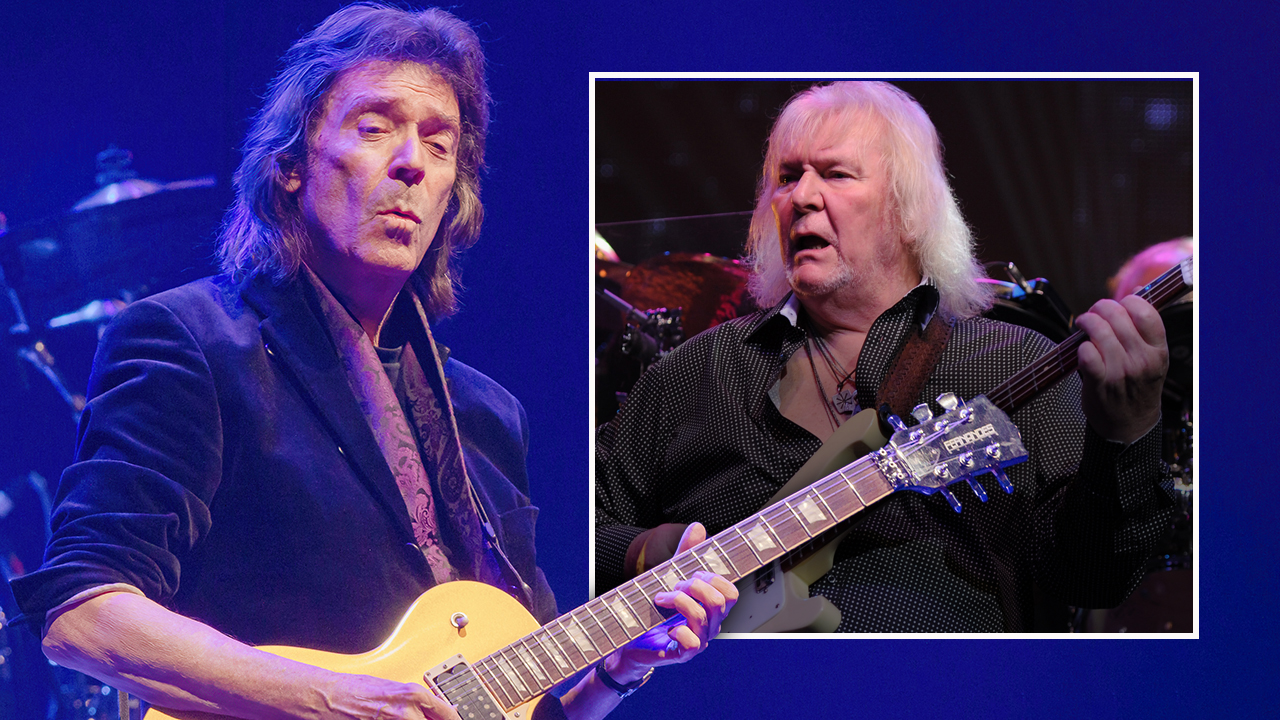"I formed this band for God’s sake! And I helped Roger a hell of a lot because he wasn’t a musician when we started." The lost Richard Wright interview
On the back of a Classic Rock cover story for Pink Floyd's The Wall back in 2000, keyboard player Richard Wright was determined to have his say. And he did
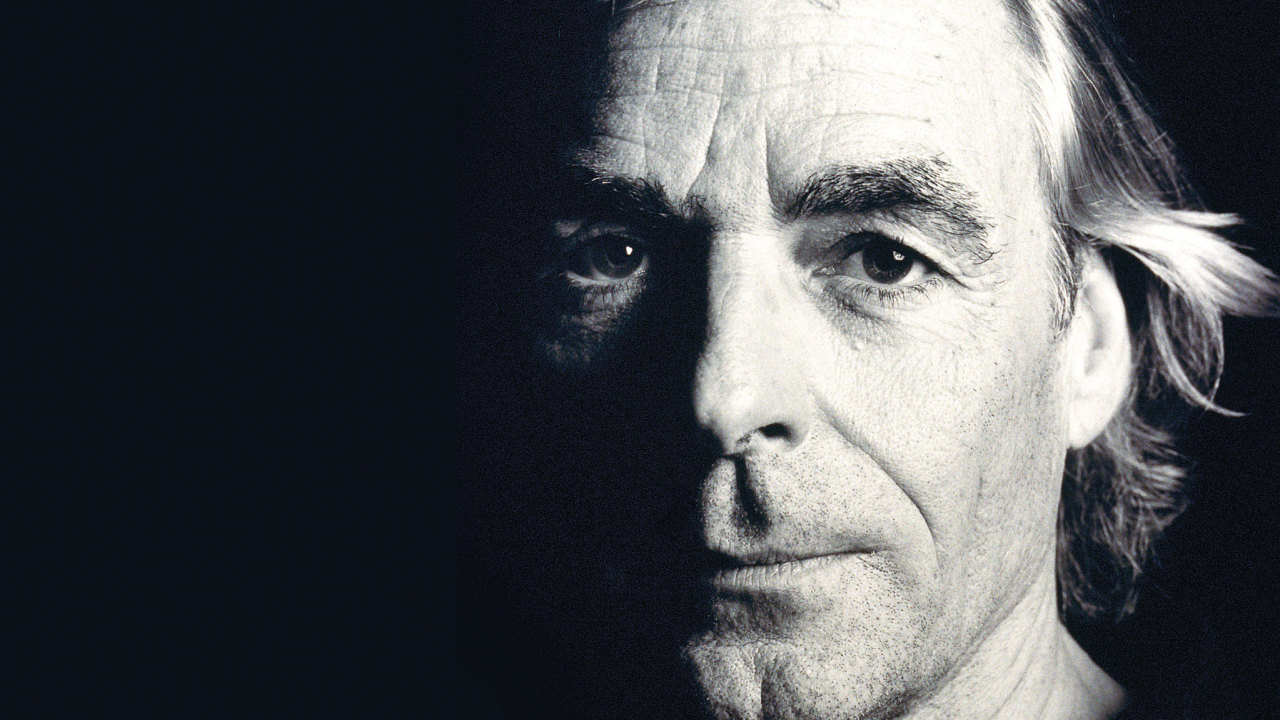
This article featured in the very first issue of Prog in 2009. It originated from a Classic Rock Pink Floyd cover story for issue 10 of the magazine, when Is There Anybody Out There? The Wall Live 1980–81 was released in early 2000, for which Wright was not initially interviewed, and then only a tiny part featured in a subsequent issue of the magazine. Prog ran the entire interview as part of our very first Pink Floyd cover feature.
Back in 1999 I spoke to Roger Waters, David Gilmour and Nick Mason for a Classic Rock magazine cover story on The Wall. We were one of two UK publications granted rare access to a band notorious for its dislike of courting the press. Pre-Live 8, the frictions which had split the band, with Waters going solo and unsuccessfully suing Gilmour and Mason for continuing under the Pink Floyd banner, were still all too evident, with recriminations still being bandied about (the delightfully placid Mason aside).
We tried to speak to Richard Wright too, but were told the now late-keyboard player was “somewhere in France”. Given that Wright was famously sacked by Waters during the making of the album, yet still toured with the band on the resultant shows as a hired hand, his views seemed integral. Others it appears, thought not so.
Within days of publication I received a phone call from Wright’s office. “Rick wants to talk to you,” I was told and promptly summoned to his Kensington Mews flat. Initially angry, Wright vented on issues in which he felt he’d been misrepresented and set out his take on the situation. It made for fascinating listening and highlighted what a dysfunctional unit Pink Floyd could be, despite the fact they’d made some of the most ground-breakingly astounding music the rock world has ever heard.
Since then, of course, the foursome of Waters, Gilmour, Mason and Wright finally buried the hatchet and appeared in Hyde Park for 2005’s Live 8, and the sentiments that flowed back in 1999 might no longer represent how band members feel today. Wright’s sad death from cancer in September 2008 has put paid to any faint hopes the quartet would reunite once more.
In the end, space dictated we only run a small news story from the interview. Now you can read all of Wright’s fascinating words…
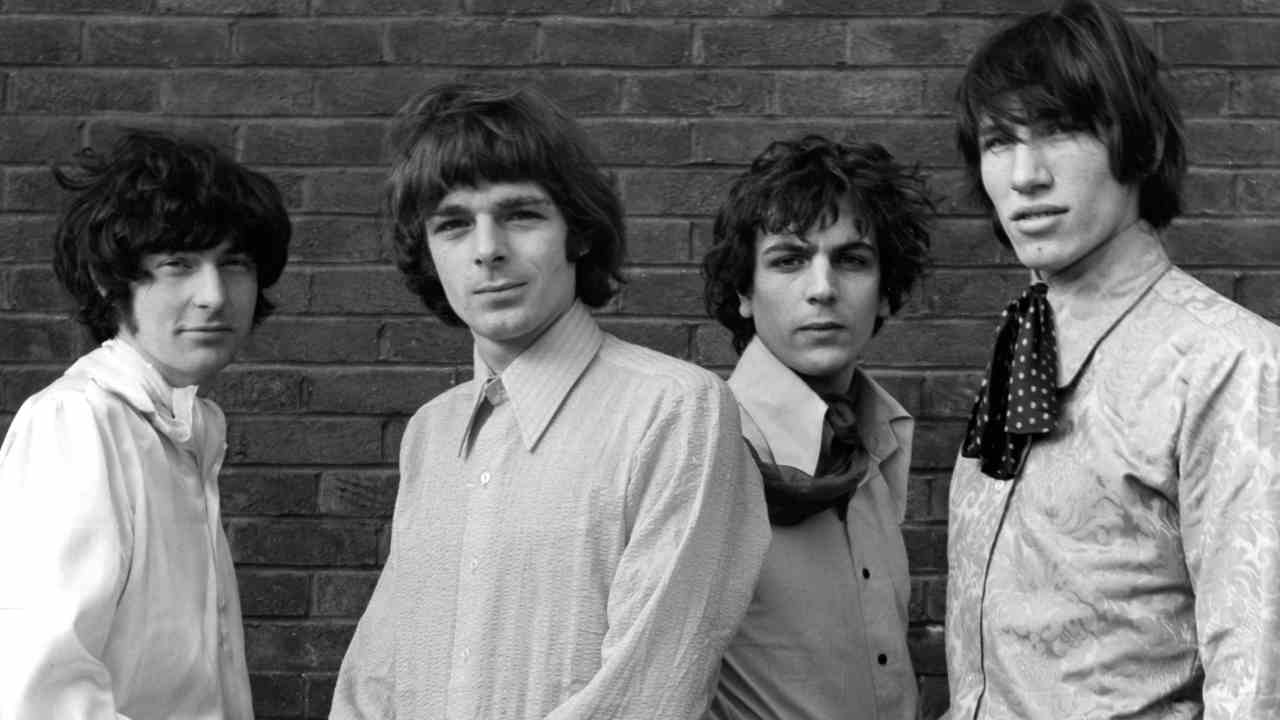
You say you want to talk to us to put forward your side of the story. What in particular were you unhappy with?
Sign up below to get the latest from Prog, plus exclusive special offers, direct to your inbox!
Various issues come up. Namely saying that I sat in the studio not really doing anything, but because I wanted to get producer’s points. In the beginning – how it worked right up until Animals – an album was co-produced by the band. But when Bob Ezrin was brought in for The Wall, I did have reservations about bringing in an outside producer. Not because of a financial thing of losing production points, because I felt that the band was losing one of its strengths, which was that Pink Floyd would fight each other sometimes – not physically, but all hands together, as a group. I think our best work came that way. It was a difficult issue, because by this time I wasn’t getting along with Roger, and with The Wall, Roger had come in with two completed pieces of work. It’s very difficult when you look back, and I think the decision to have an outside producer was the right one, but at the time I felt pretty sure that the Floyd was losing how it used to work. But that was in the beginning. Once I got to know Bob, I thought it was very good that we had him there. If he hadn’t been there, The Wall wouldn’t have been made, as there was much friction going on with the band. All credit to Roger, he came in with a very rough demo, but I do remember sitting there in Britannia Row with David and Bob and Roger and wondering how we could make it better. Now how much input I or Dave put in to improve Roger’s original concept, I don’t know, but the band was there. There was friction between Roger and I. And there had been friction between us during Animals.
When did the friction that would result in your sacking start, do you think?
There was this friction even during The Dark Side Of The Moon, where we the three of us – Dave, Roger and me – were writers. A lot of the concept came from Roger. But we had discussions, arguments, over who should get the share of the credits for songwriting. There was friction with Wish You Were Here. But sometimes it was very good and helped make good records. There has always been friction between me and Roger, right from the beginning. Personality-wise, we just didn’t get on. I can remember the friction when we were still students at Regent Street Polytechnic before the band turned professional. There was this thing between us. But it was a healthy thing. We would not choose to be friends, even at this time, Roger and I. But I could work with him because I could recognise the qualities in the band.
But it was essentially the friction between you and Roger that caused the problems?
I have to say Roger, to his credit, would come up with ‘The Big Idea’. That was his role in the band – sometimes very extreme ideas. And Dave and I provided the music to his ideas. That was how the band worked. Some of his ideas – he wanted sound effects blasting out to cover the music, and Dave and I would refuse. He annoyed me, and I annoyed him, just being the way I am. I’m a more reticent person and so I wouldn’t voice my opinions as strongly as he did. And sometimes that can be interpreted as not having an opinion. But when it came to The Wall, it was no longer a band anyway. But I feel I formed this band for God’s sake! And I helped Roger a hell of a lot because he wasn’t a musician when we started. And so did Dave. As Dave said, he feels it was wrong for me to be thrown out, and the way it should have been sorted out was to sit down and talk it out. From Animals on, maybe even earlier, Roger felt he was the band and that all of us were useful to his idea. It wasn’t like that, but he got that feeling. But I can understand why he got that feeling, because he was the one that pushed us all. Dave and I were more laid-back, sometimes maybe lazy... His was a very important role but it only works with Dave and me working with him. And you can use the success of his solo albums as proof that there was a chemistry between the four. By the time of Animals I had not written anything.
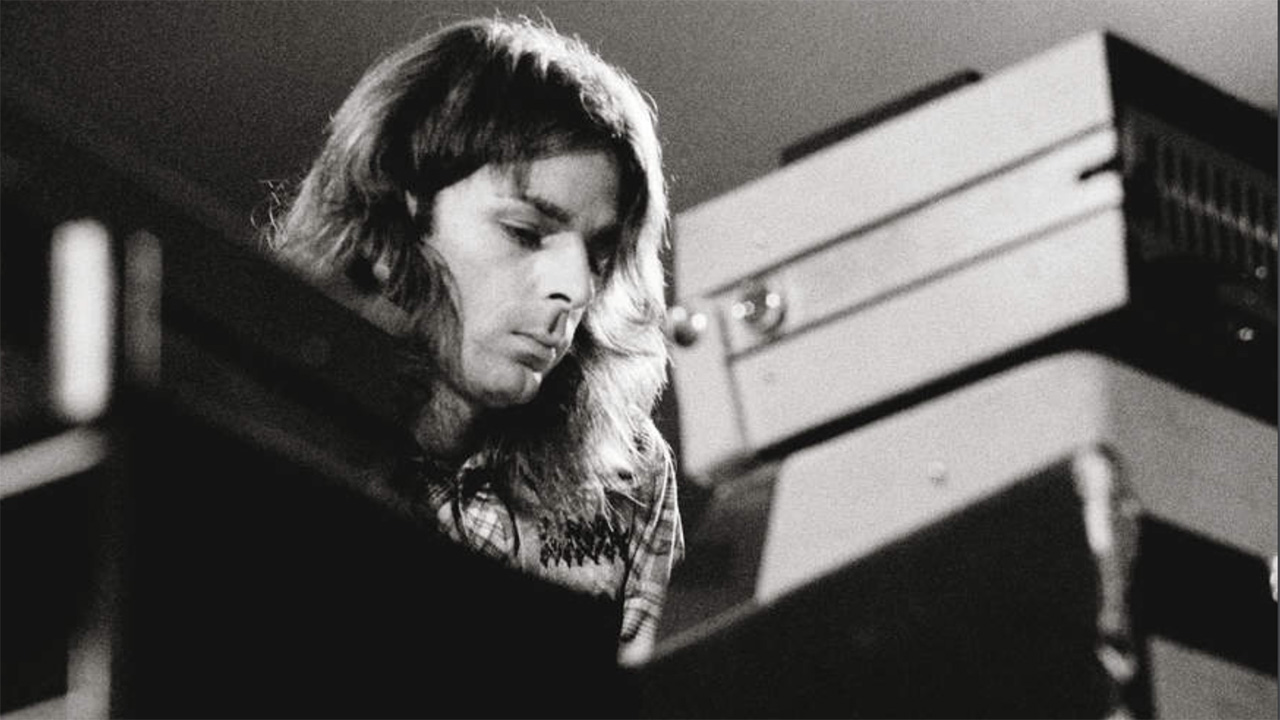
Why was that?
That’s purely a personal thing but I hadn’t come up with anything and I had very little to offer. Dave had little to offer. But I think my keyboard playing is very good. When you get to The Wall and Roger came up with the idea for another album, and at this point I still hadn’t written anything. It always used to be a joke that you saved your best stuff for your solo album and I know that isn’t the case with me!
How do you view your solo albums these days? Roger was rather scathing in the interview [Waters refers to “his awful solo albums” in the original article].
This is Roger. After 18 years maybe he’s changed. Clearly in interviews this anger towards the band carries on after he left, and this belief of how important he was to the band and no one else was is still there. It amazes me that he still has this and that he can’t look back and see that some of his best work was when we were together. Same old Roger. Why did he say that? I think my first solo album [1978’s Wet Dream] considering the circumstances I was in wasn’t great, it was OK. The Zee one (1984’s Identity, recorded with Dee Harris from Fashion, pictured left) was a disaster and he has every right to say so. That was a period in my life when I was lost. But my last one [1996’s Broken China] I am extremely proud of. It wasn’t a commercial success,
but neither was his. He’s saying his last solo album [at the time, 1992’s Amused To Death] was the most brilliant thing on the planet – and that history will show it was a great, great piece of work. This idea that his solo work is great and everybody else’s is terrible is something beyond all that. He needs to say that, I don’t know for what reason. I wasn’t upset by what he said. I expected it. That’s the Roger I know. I thought some of Amused To Death was very, very good and in other parts I don’t like this kind of stuff. And if he’d been working with the Floyd, that was the kind of stuff that wouldn’t have made it onto the album.
When I look back, I think my solo album was about depression and my personal experience of someone else having depression. At the time of The Wall I think I was depressed. For what reasons, possibly divorce, a terrible relationship with my first wife, and I think now I wasn’t offering everything I had because I wasn’t feeling very good within myself. I didn’t know I was in that state, but I’m pretty sure that the others interpreted it as he doesn’t care, he’s not interested – particularly Roger. He made it extremely difficult for me to work. And you can ask Bob Ezrin, I think he had planned to get rid of me for personal reasons rather than musical, so tried to make it as hard as possible. Funnily enough, talking to [Pink Floyd engineer] James Guthrie, who’s very reliable, he said, “Your playing is great”. So what’s going on here?
Somewhere it’s mentioned that I lived in the studio, while they had their families. But actually I was living in the studio and missing my family, my children desperately, because they had to go to school. Whereas theirs were young enough to be with them. I stayed in the studio, and they’d say “Why do you go in to work at night?”. And it was because there were no engineers there, the whole album had been mapped out, and I could go in and do a piano part – and it was very hard if Roger or Bob were there.
But this idea that I was sitting around, wasting my time, is not really fair. But on other hand, I was slightly depressed, maybe really depressed. Since I’ve been talking to a therapist later in my life, I realised I probably was and I didn’t contribute as much as I should.
Everything seems to have come to a head when you all went on holiday, mid-recording, in August 1979 [Waters claims Wright’s reaction to being called back to the studio a week early was “Tell Roger to fuck off”].
We all agreed to have a holiday. Roger had already gone to LA, Dave may have gone there as well, I can’t remember. And then a week before I agreed, it was decided to come together again. And up until this point I had no knowledge this was going on. Now reading this, it was obvious he was planning all this way before I thought he was. Anyway, I had a plan from the manager to come back now and start recording. And my reaction was, “No, he’s been sent to do this, he’s testing me. We’ve all agreed and I had specific time with my children, and there was no indication to me that we were that much behind schedule. Will you come now? No, I’m coming on the agreed date”. But I didn’t tell Roger to fuck off. I wouldn’t say that. And that was the last I heard of it, until I arrived in LA and [manager] Steve O’Rourke said to me, “Roger wants you out of the band".
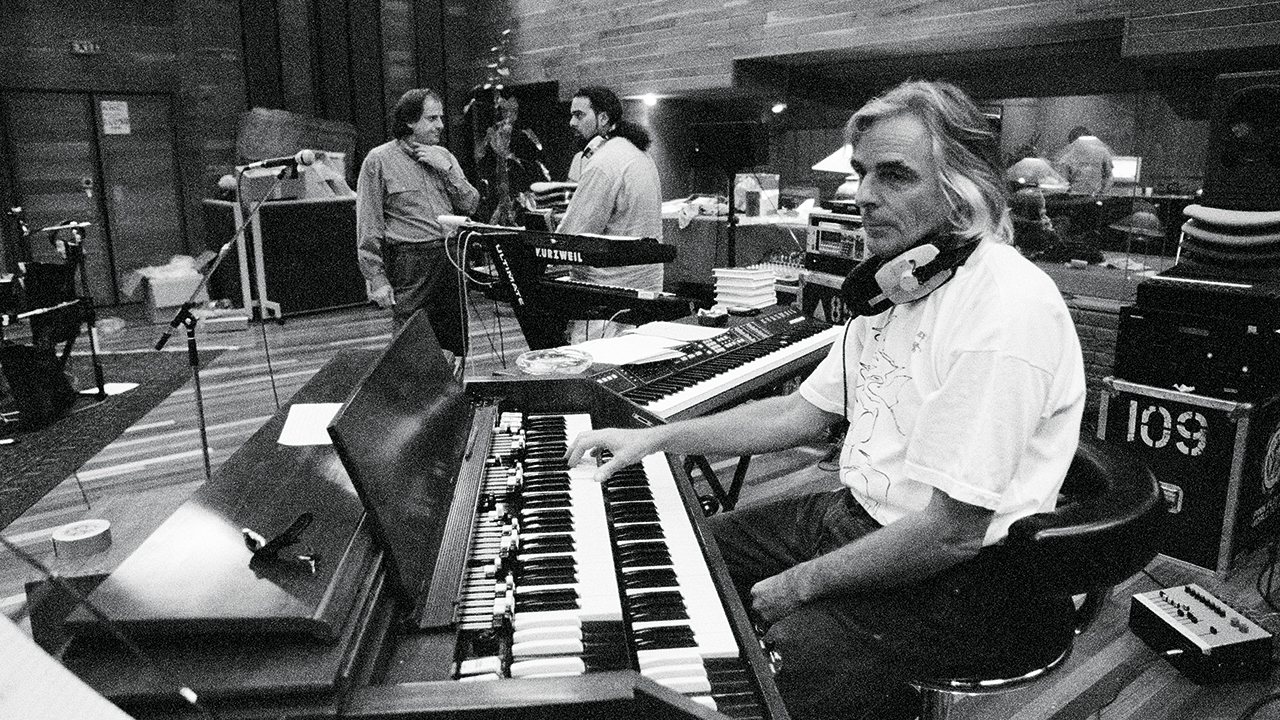
You’ve since seen each other again though, of course?
Another thing I read in a magazine was that I went to see Roger play live and I came backstage and I’d “had a couple” – which I hadn’t. I felt very awkward, but Jon Carin was a keyboard player for us and Roger said, “You must come”. I didn’t want to. And then in this article, he said I was very friendly to his face but out front I was slagging him off. And this made me very angry. How did he know? Who told him? It’s not true. I was sitting in the front, finding it quite difficult listening to him perform Pink Floyd songs, because I wanted to be up there. When they were playing Comfortably Numb and Wish You Were Here it just wasn’t as good as when the four of us were performing and certainly not as good as the three of us, because Dave’s vocals and guitar playing are so definite.
But when he got to his solo work I could relax. I was quite impressed. I was also quite impressed with him as a performer, because it’s not easy. He had a very small light show. He couldn’t hide behind the lights, like you can in a Pink Floyd show. But he was upfront on stage and I thought his performance was good for his solo stuff, and also his singing. I thought, “My God, he’s really singing well” and I know that Roger had a hell of a time tuning vocals. And I subsequently heard – and he can say whether it’s true or not – that actually his vocals were taped. But at the time I thought, 'These vocals are really in tune and wonderful'. Then I subsequently heard, actually they’re taped and he’s miming a lot of it. One person sitting next to me recognised me and said, “Great, you’re here, are you getting up on stage?” I said, “I don’t think so”. He said, “What do you think of the show?” And I told him that I found it hard to listen to the Pink Floyd stuff but I’m quite impressed with his performance. That’s all I said. That is not slagging him off. I think Roger just made it up.
And I think, “Why do you have to say these things, Roger?” It was difficult for both of us, backstage. I hadn’t seen him for 18, 19 years. I didn’t want to go, but Jon persuaded me, and my wife persuaded me – she didn’t know what happened – and I thought, Why not, We’re grown men now. So I went backstage, shook his hand and said, “How are you?” And we both felt awkward. And that was it. There was no great meaningful conversation. I’m at the point where all this bullshit should stop. I think it’s kind of juvenile now to keep on fighting.
The very fact the pair of you met up suggests some thawing of the relationship?
He’s a very good talker with a very bright mind. I asked Jon Carin, “How is it to work with Roger?” He said, “He’s sweet and kind and very nice to the band”. I believe Eric Clapton playing with him [Clapton featured on Water’s 1984 The Pros And Cons Of Hitch Hiking] must have been a bad time in Eric’s life to go out with Roger Waters. But the fact that half the crowd had come to see Eric Clapton – and Eric would do a solo and the crowd would applaud it, and Roger going backstage, “What the fuck are you doing Eric, this is my show”. That Roger I know about. The sweet, kind Roger that Jon told me about I don’t know. He has a lot of bitterness and anger. I had a lot of bitterness and anger about how I was treated. It was simply this: either leave or I won’t record The Wall. I was in a no-win situation. If he carried out his bluff, financially we were all terrified. Dave and Nick wouldn’t support me. And to this day, I think “What if I’d called his bluff, what would have happened?”. After that I thought and thought. My conclusion was I didn’t like the way the band was going, and the way he was operating, this band wasn’t going to last much longer anyway. But my attitude was “I’m leaving, but I want to finish the recording and do the live shows”. I couldn’t just walk out the door. I know Dave and Nick felt bad about it – but Dave said he would never have asked me to leave.
How on earth did you cope on The Wall tour, as a member of the band, but not a member of the band?
I shut off the whole idea that I was leaving the band. I actually fooled myself that I’d play as well as I could and maybe he’ll admit he was wrong. So I put everything into it. The pictures look like we’re all together. I was in limbo. “I’m going to try and enjoy this show”, that was my feeling. Roger was saying somewhere that we had separate caravans and changing rooms – and we lost it because we were all in our separate places. He wanted it that way. Dave and Nick and I didn’t want it that way. He’d travel in his own car to the gig, different hotels from anyone else. He created the isolation. I can’t say what happened on The Wall movie or The Final Cut.
What do you think of The Final Cut?
I don’t particularly like it. I look on it as a solo album and I think he does too.
What do you make of the allegations that Dave suggested if you were out, why not get rid of Nick Mason too?
I think the feeling is that what Roger really wanted was for him to become the leader with Dave Gilmour as his sidekick playing the guitar. They used other drummers on The Wall – so Roger might have thought he could use session players. I can’t say... I don’t know what Roger was planning. They used to be mates, Nick and Roger...
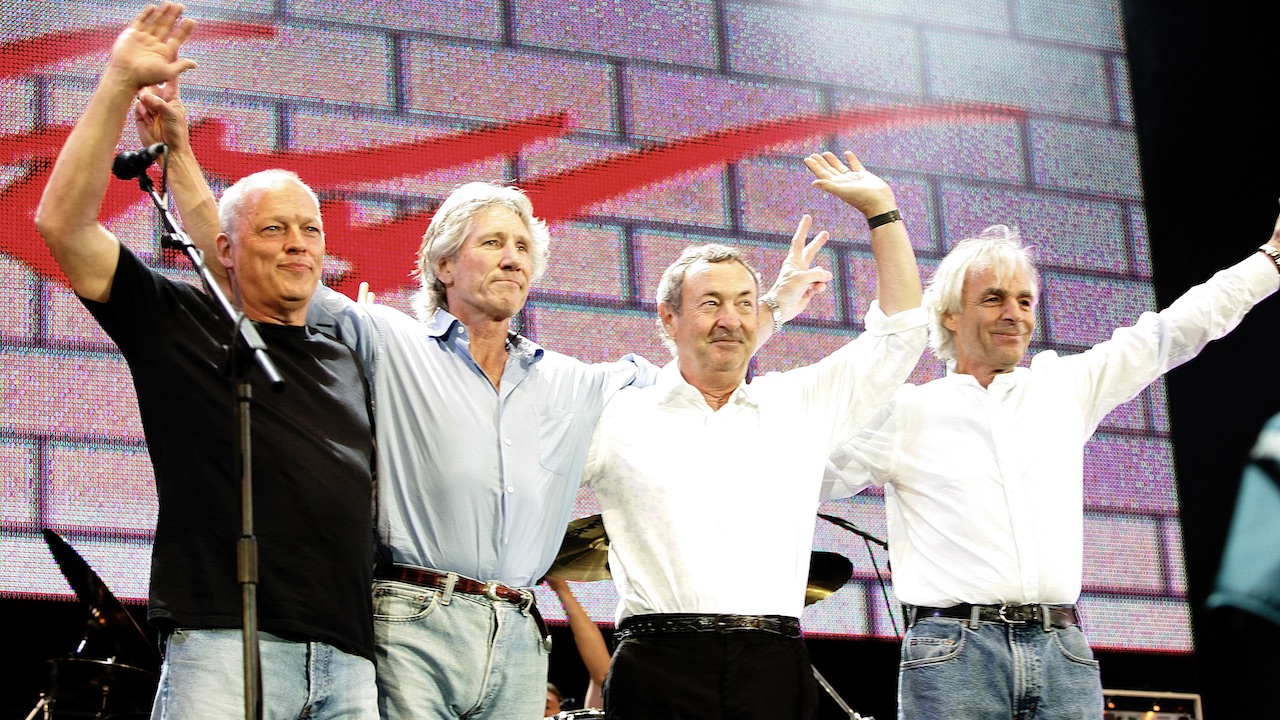
How did the process of you rejoining Pink Floyd for the Momentary Lapse Of Reason tour work out?
I’d heard Roger had left the band but that Dave and Nick were making a new Pink Floyd record, and I was in Greece. It says in your feature that my second wife went along to Dave. This is quite possible but I went to see Dave and said I would be very interested in getting involved again. I don’t know if my wife went to Dave. I don’t know if Dave and Nick were having a fight with Roger because I came into the middle or end of the recording of A Momentary Lapse Of Reason, but I think it’s interesting – we hadn’t seen each other in a long time. I remember having a meal with them and Steve in a restaurant in Hampstead and I think they wanted to see how I was. I passed the test and I was invited to play on the album and do the tour. That tour for me was probably one of the most enjoyable tours that we’d ever done. I still had this anger about what had happened with Roger and that it would never work again if he was in the band. Everybody has these egos. Dave has said Nick and Rick couldn’t play on that tour. He was pretty bad on the tour. He suggested that he was leading us through and helping us. It wasn’t like that. He came and played on my solo album on one track – and he couldn’t play properly. No criticism of Dave but it was because he hadn’t been on the road. By the time we got through the rehearsals we were playing near to our capabilities. After five or six shows we improved. But we weren’t that bad.
Typically Roger was very critical of A Momentary Lapse Of Reason.
Roger has criticisms of that album which I think are fair – because Dave did bring in a lot of people to help him make the album. It’s not a band album at all.
So where you a full band member when it came to recording The Division Bell?
Full member is partly true. Not in terms of contract. Dave and Nick didn’t want to give away what they’d gained. And it came very close to a point where I wasn’t going to do The Division Bell because I didn’t feel that what we agreed was fair. And interestingly Dave said you have this right to be a member of the band, but when it comes to the nitty gritty wouldn’t give it back, which I think was kind of selfish. Me rejoining the band when they were still fighting Roger helped them, because Roger’s criticism was that it wasn’t Pink Floyd anymore, but by me being there gave them three members again – and two of them were writers.
Musically, I’m a full member again. Contractually, no. Now, if anything happens again, it’s full member or nothing - that’s my attitude. I hope something does happen and everyone else does. I think Dave’s problem is he worked damn hard on Momentary Lapse… and he thinks he felt he took the whole thing on his shoulders and he did. When it came to The Division Bell, he felt he was taking the whole thing on his shoulders and, again, he was, but he didn’t want to delegate, he didn’t want contributions from me. I think he thought, if there was the next Floyd album he’d have a hell of a lot of work to do. But it doesn’t have to be like that. It could be written the way we used to. But I have been lazy and haven’t done enough because I had big changes in my life, although I have quite a bit of material stashed away. We’ve both been lazy. Dave’s reticent about the future but I really do hope we do something again.
How do you feel now about the fact that you were the only member of Floyd to make money from touring The Wall?
I took no pride in the fact that I made money and they didn’t. There are certain purists who don’t think that Pink Floyd is the real band since Syd left, and if you listen to the first two albums and what Syd contributed to it and what we played, sure, after that Pink Floyd changed very very much so. Now, most people’s feeling is that what Pink Floyd is, is what we did after Syd left. My feeling is that as long as I’m on the keyboards and Dave is playing his guitar…
I wish we could have all been great buddies and carried on. Roger’s real problem is he thinks his solo albums are the real Pink Floyd, but no, Roger, they’re not. But I don’t know what goes on inside his head.
Writer and broadcaster Jerry Ewing is the Editor of Prog Magazine which he founded for Future Publishing in 2009. He grew up in Sydney and began his writing career in London for Metal Forces magazine in 1989. He has since written for Metal Hammer, Maxim, Vox, Stuff and Bizarre magazines, among others. He created and edited Classic Rock Magazine for Dennis Publishing in 1998 and is the author of a variety of books on both music and sport, including Wonderous Stories; A Journey Through The Landscape Of Progressive Rock.
You must confirm your public display name before commenting
Please logout and then login again, you will then be prompted to enter your display name.

